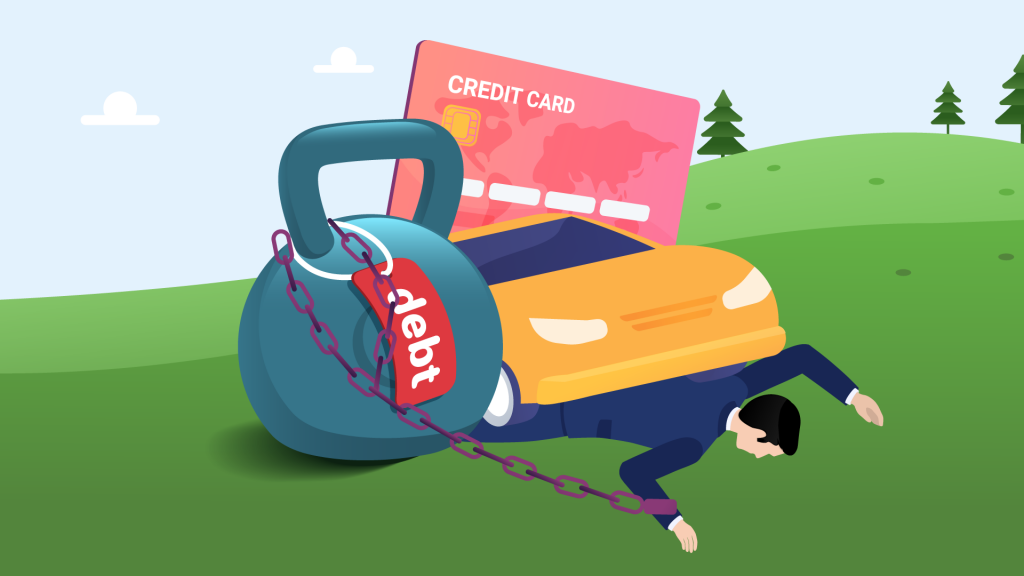
Being in debt isn’t as bad as some may think. You see, not all debt is necessarily bad. At the same time, not all debt is good either.
Take a moment to consider the merits of what you’re buying and whether the cost is justified as you weigh the pros and cons of borrowing versus paying cash. Remember, if you can’t afford it, all debt is bad debt.
Good Debts

Is there such a thing as “good debt”? The short answer? Yes – good debt as a portion of your household debt is almost always a form of valuable investment that helps you in increasing your earning capacity, generating income, and increasing your net worth. In fact, any of these are good indicators of good debt. Let us look at some examples:
1. Student Loans
A university degree is still a stepping stone to many different careers.
A degree or diploma increases your chances of landing a higher-paying first job and potentially improves your future prospects. As a result, your higher education debt is likely to be paid off once you begin working. Take note of the debt interest rate as well. When compared to other types of debt, Malaysian student loans typically have much lower, if not, 0% interest rates.
2. Mortgages
One of the most significant adulting milestones is, of course, purchasing your first home. Unless you have been significantly blessed, you will need to use a mortgage or a housing loan to buy a property.
A mortgage is a long-term debt to the bank that must be repaid. So, what makes a mortgage a good type of debt? Because asset appreciation increases your net worth significantly over time.
After securing the mortgage, the value of the property is tied to your net worth – and the value of property often increases. That means a RM 400,000 property that you take out a loan for today could be worth RM 450,000 in three years!
Taking out a mortgage for the purpose of investment (taking a loan for the property, then leasing it for more than the monthly payments) can even generate income!
That is why mortgages can be considered good debt as your net worth grows, as well as your potential cash flow boost.
Bad Debts

Avoid bad debts at all costs! The trouble with household debt starts when you borrow money to buy something that decreases in value – we’re talking about things like jewelry (certain jewelries), gadgets, or fashion items to name a few. These are, as you can tell, bad debts.
1. Car Loans
New cars are without a doubt the worst from a money standpoint. You lose around 5% of the car’s value as soon as you turn it from “New” to “Owned”.
To be honest, a car is almost certainly a necessity for work especially in Malaysia – try to save money by buying a used secondhand model instead of a new one. Accumulating massive debt on an asset that decreases in value is the main reason why bankruptcy filings are on the rise among younger people.
2. Credit Cards
No credit cards are bad if you pay your balance in full every month. Actually, having a credit score helps secure a mortgage, as mentioned above. So, create a good habit of paying the credit card’s debt on time.
But if you’ve exhausted your available credit by the end of the month, this is where you enter the ugly realm of credit card debt. We’re talking double digits with interest rates ranging from 10% to nearly 20% on credit card balances.
Ready to Pay Off Your Debts with Debt Management Plan?
You might be wondering about your options when it comes to getting debt help. There are many ways to get rid of debt, for example, putting your money in an emergency fund or using a snowball debt method. Another way is using a cash management tool such as our Versa Cash/i by accumulating daily interest to pay off your debts.
Assuming your salary is RM 5,000/month and your payday is on the 28th of every month. On top of that, you have a car loan that is RM 1,000/month that needs to be paid on the following 15th of every month. There is a buffer of 17 days and this is where Versa can help you monthly returns.
Unlike FDs, once you need to pay for your loan, you can withdraw your money anytime as there are no lock-in periods to meet the deadline.
While some of these steps may seem small, they are important for building a solid financial foundation that will allow you to successfully pay off your debt. A little goes a long way.

